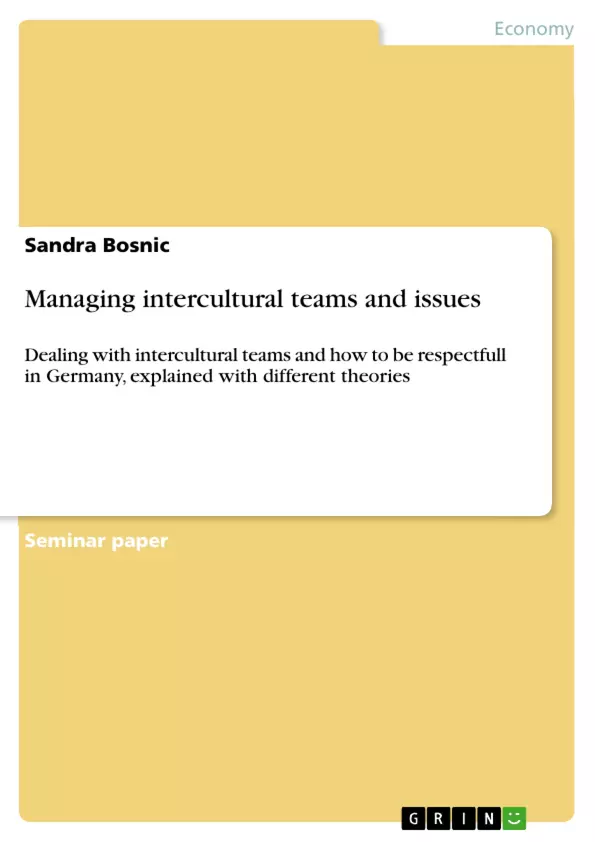I learned how to deal with different types of cultures and how to behave in various situations. I got to know the correspondence between needs and languages. The four types of language are:
- Value(s)
- Structure(d)
- Relation(s)
- Idea(s).
Every type of them has different needs, for example the value-type is looking for esteem, which means he needs acknowledgement and respect for his actions more than other types would need it. The idea-type wants to have attentions and is a creative person, they want to play and to try new things. The relation-type needs affection and reassurance for his / her doings and loves to have contact with others. Last but not least the structured-type is happy to have methods, processes and knowledge which he / she needs to follow. This type wants conformation for that. If people don’t get satisfaction for their individual physical needs they get less motivated and this could lead to mistakes in their work or behavior. These human beings develop an increased lack of emotional capital and they feel frustrated and sad. If they show and how they behave in these situations depends on the type of language they’re speaking.
Inhaltsverzeichnis (Table of Contents)
- General Part
- What have I learned, what are my take aways from Miti seminar?
- What I will do differently? How to implement my learnings?
- How was the Miti seminar for me?
- What I liked?
- What I disliked?
- Specific Part
- How to be respectful and inquiry (different dimensions in Germany)
Zielsetzung und Themenschwerpunkte (Objectives and Key Themes)
This paper analyzes the author's personal learning experience during the Miti seminar, focusing on intercultural communication and teamwork skills. The seminar provided insights into various cultural perspectives and communication styles, aiming to enhance the author's ability to navigate diverse work environments.- Understanding Cultural Differences: The seminar explored the impact of cultural background on individual needs, communication styles, and conflict resolution approaches.
- Effective Communication Strategies: The paper emphasizes the importance of adapting communication styles to different cultural contexts, particularly highlighting the distinction between "high-context" and "low-context" cultures.
- Intercultural Conflict Management: The author examines the dynamics of conflict within diverse teams and discusses strategies for effective conflict resolution based on cultural understanding.
- Personal Growth and Development: The paper reflects on the author's personal growth and how the seminar has influenced their approach to intercultural interactions and teamwork.
Zusammenfassung der Kapitel (Chapter Summaries)
General Part
The author reflects on their key takeaways from the Miti seminar. They discuss the concept of "languages" in a cultural context, recognizing the varying needs of individuals based on their value, structure, relation, and idea orientations. The paper explores the influence of unmet needs on individual motivation and behavior, emphasizing the impact on work performance and relationships. Additionally, the author delves into the nature of stress, differentiating between "good" and "bad" stress. They highlight the importance of conflict management in diverse teams and the potential for both constructive and destructive conflict. The author analyzes the stages of conflict and the role of individual neurolinguistic filters in shaping perceptions and interpretations. The seminar's "American Tournament" activity demonstrated the significance of cultural differences in rules and communication for successful collaboration. The author also reflects on the complexity of culture, highlighting the need for a nuanced understanding of traditions, history, and perspectives. They emphasize the importance of appreciating different values and their impact on work styles, particularly comparing Germany with countries like Italy and India.Specific Part
This section delves into the various aspects of "being respectful and inquiring" in different dimensions within Germany. It touches upon elements like formality, relationships, timeliness, quality and facts, clothing, distance keeping, competitiveness, uncertainty avoidance, media, identity, conceptual expression, power distance, and feedback. However, the paper does not provide detailed insights into these aspects.Schlüsselwörter (Keywords)
This seminar paper examines the themes of intercultural communication, cultural differences, communication styles, conflict management, personal growth, and teamwork. It highlights key concepts like "languages," "value types," "high-context" and "low-context" cultures, "power distance index," and "peach and coconut models."Frequently Asked Questions
What are the four types of "languages" in intercultural communication?
The four types are Value (seeking esteem), Structure (needing methods and processes), Relation (needing affection and contact), and Idea (seeking attention and creativity).
How do unmet individual needs affect work performance?
If people do not get satisfaction for their individual needs, they become less motivated, which can lead to mistakes in work, a lack of emotional capital, and feelings of frustration or sadness.
What is the difference between high-context and low-context cultures?
The paper emphasizes adapting communication styles based on these contexts to navigate diverse work environments effectively, though it notes that German culture is often categorized within specific dimensions of formality and facts.
What is the "Peach and Coconut" model mentioned in the keywords?
This model is a cultural metaphor used to describe communication styles and levels of openness in different cultures, often used to compare public and private personas.
How does the paper address conflict management in diverse teams?
The author explores the dynamics of conflict, differentiating between "good" and "bad" stress, and discusses strategies for resolution based on cultural understanding and neurolinguistic filters.
What cultural comparisons are made regarding work styles?
The paper reflects on the impact of different values on work styles by comparing Germany with other countries like Italy and India.
- Quote paper
- Sandra Bosnic (Author), 2014, Managing intercultural teams and issues, Munich, GRIN Verlag, https://www.grin.com/document/278023



